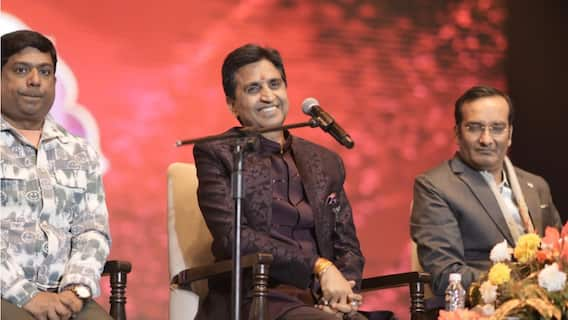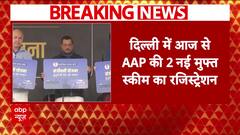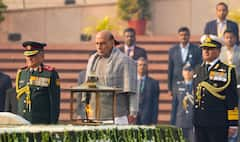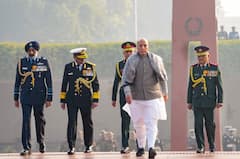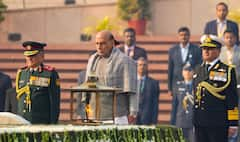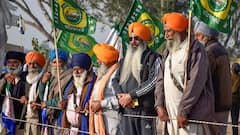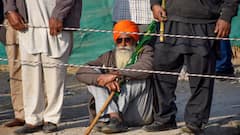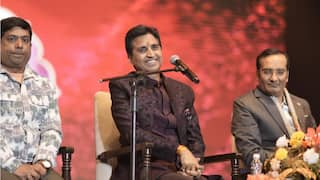Regional Parties 'Clearly Important' For 2024 Polls, CAA To Reduce Role Of Minorities: Amartya Sen
Sen said that it “would be a mistake” to think that the 2024 Lok Sabha election would be a one-horse race in favour of the BJP, and felt that the role of regional parties would be “clearly important”.

New Delhi: Nobel Laureate Amartya Sen said that it “would be a mistake” to think that the 2024 Lok Sabha election would be a one-horse race in favour of the BJP, and felt that the role of a number of regional parties would be “clearly important” for the upcoming general election, as reported by the news agency PTI.
The economist also said that though Trinamool Congress supremo Mamata Banerjee has the ability to be India's next Prime Minister, it is yet to be established whether the West Bengal Chief Minister could be able to pull the forces of public dismay against the BJP.
"I think a number of regional parties are clearly important. I think the DMK is an important party, the TMC is certainly important and the Samajwadi Party has some standing but whether that could be extended I do not know.
"I think it would be a mistake to take the dismissive view that there is no other party that can take the place of BJP since it has established itself as a party with a vision that is inclined in the direction of Hindus over the rest of the country," he told PTI in an exclusive interview here.
Leaders of several parties including the Nationalist Congress Party (NCP) and the Janata Dal (United) have called for a new alliance including the Congress for the Lok Sabha polls in 2024. They have emphasised that a bipolar contest will ensure the BJP's defeat.
"The BJP has substantially reduced the vision of India. It has narrowed the understanding of India as just Hindu India and as a Hindi-speaking India in such a strong way that it would be sad if there is no alternative to the BJP in India today.
"If the BJP looks strong and powerful, it has a good deal of weakness too. So, I think other political parties will be able to come to a debate if they really try. I do not know enough to be able to dismiss the anti-BJP parties together," he said, as quoted by PTI.
On whether Banerjee could be the country's next PM, Sen said she has the ability. "It's not that she does not have the ability to do it. She clearly has the ability. On the other hand, it's yet not established that Mamata can pull the forces of public dismay against the BJP in an integrated way to make it possible for her to have the leadership to put an end to the fractionalisation in India," PTI quoted the economist as saying.
Regional parties led by Banerjee's TMC, K Chandrashekar Rao's Telangana Rashtra Samithi (TRS), and Arvind Kejriwal's Aam Aadmi Party (AAM) had formed the Federal Front (FF) in the run-up to the 2019 general election.
In January of that year, talks were held among the leaders gathered in Kolkata at a grand meeting organised by the TMC supremo. Among those present were JD(S) leader and then Karnataka Chief Minister HD Kumaraswamy, former Prime Minister HD Deve Gowda, Arvind Kejriwal (AAP), former UP Chief Ministers Akhilesh Yadav (SP), MK Stalin (DMK) of Tamil Nadu, Sharad Pawar of Maharashtra, Omar Abdullah and Farooq Abdullah of Jammu and Kashmir, and Gegong Apang of Arunachal Pradesh.
Sen expressed doubts about Congress' ability to win the 2024 elections, which he believes has "weakened". He, however, said that it is the only party to provide an all-India vision.
"The Congress seems to have weakened a lot and I do not know how much somebody can rely on Congress. On the other hand, Congress certainly provides an all-India vision that no other party can take over. Then again, there are divisions within the Congress," he said.
The 90-year-old economist believes that the implementation of the Citizenship Amendment Act (CAA) could reduce the role of minorities in the country while encouraging majoritarian forces. In an interview with PTI, he said India’s father of the nation Mahatma Gandhi had worked for a “just polity, and a good sense of national identity”, for all sections of society.
"As far as I can see, one of BJP's purposes (by implementing CAA) is to reduce the role of minorities and make them less important and, in a direct and indirect way, increase the role of the Hindu majoritarian forces in India and to that extent undermine the minorities,” the economist said.
The CAA through which the Centre wants to grant Indian nationality to non-Muslim migrants from Bangladesh, Pakistan, and Afghanistan, was passed by Parliament on December 11, 2019, and the Presidential nod was received the next day.
Subsequently, it was notified by the home ministry. However, the law is yet to be implemented as rules under the CAA are yet to be framed.
"It's very unfortunate for a country like India which is meant to be a secular, egalitarian nation and it has also been used for particularly unfortunate discriminatory action like declaring minorities, whether from Bangladesh or West Bengal, as foreign rather than indigenous. This is pretty demeaning and I would regard that to be a bad move basically,” he said, PTI quoted.
Asked whether the BJP-led central government has improved in its performance in these years, Sen replied in the negative. "I do not think it has improved. I think what India needs is a recognition that every Indian has certain rights and they come from their membership of the nation. That was after all what Mahatma Gandhi tried to do," he said.
Mahatma Gandhi did not try to cultivate one group against another, Sen said adding that despite being "strongly committed Hindu in a religious way", he was willing to give Muslims much more standing than they had at that time before Independence.
“I think the move was for a fair culture, a just polity, and a good sense of national identity. Someday India will regret the neglect of the minorities like Muslims," the economist said.
The objective of the CAA is to grant Indian citizenship to persecuted minorities like Hindus, Sikhs, Jains, Buddhists, Parsis, and Christians from Pakistan, Bangladesh, and Afghanistan.
(With PTI Inputs)
Trending News
Top Headlines









